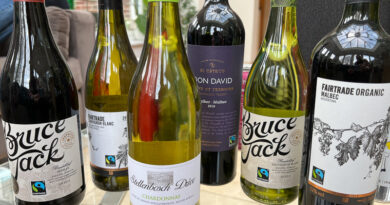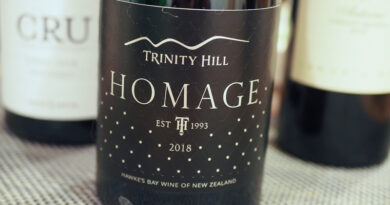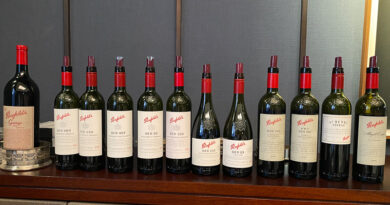The Business of English Wine (2): Robin Hutson, Chairman of the Pig Hotels and founder of Hotel du Vin
In the second of our series on the business of English wine, Lisse Garnett interviews influential hotelier Robin Hutson, the man who invented the boutique hotel with his business partner and Master Sommelier Gerard Basset. For the past seven years he has been using his considerable clout to popularise English wine through his Pig chain of ‘restaurants with rooms’.
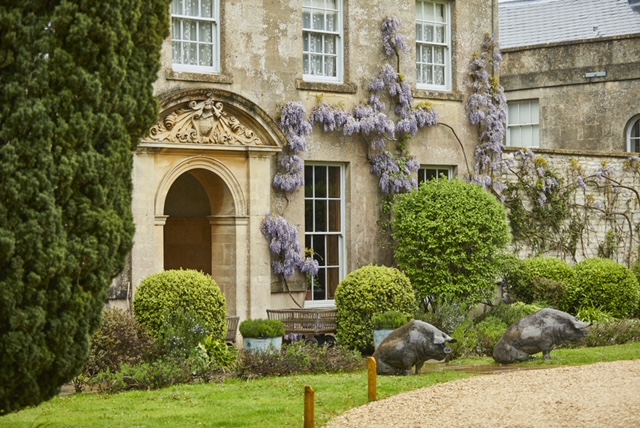
The Pig Near Bath
Robin Hutson’s first hotel chain, Hotel du Vin was responsible for conceptualizing a generation’s understanding of ‘boutique’. In the 80s this word conjured fusty fashion shops, pearls and dusty muted pastels; it was a concept that had fallen on hard times since its 60s heyday when it was synonymous with high fashion, punk and the infamous Kings road in Chelsea. Small, eclectically furnished, individualised, unique, boutique – the Hotel du Vin aesthetic sired an entire movement of desirable functionality and make-do-and-mend the like of which has not been seen since Arts and Crafts hit the décor scene in the 1890s. Suddenly chintzy mismatched plates and cheap old Master copies were witty and relevant. And it had never been consciously done before.
For Robin Hutson, his business partner – supreme sommelier Gerard Basset – and his wife Judy, the eclectic choices were part necessity: they simply did not have the cash for new. For us, his then youthful clientele this was something sincere and radical; here was a place we could feel comfortable, where every bedroom was different; a country house where booze was served long into the night, where (as yet unencumbered by children) we might nurse scotch next to an open fire, eat unpretentious French bistro fare and sup fine well-priced wines with abandon. Hotel du Vin hit the needs and desires of the professional late twenty something 90s market square on. Founded in 1994, the chain was sold in 2004 for 66 million pounds.
Basset met Hutson when he joined the team at Chewton Glen where Hutson was Hotel manager. Frenchman Basset had initially come to the UK aged twenty to watch his team get thrashed by Liverpool and, liking the look of the local women, he vowed to return. True to his word, two years later he was working wash up on the Isle of White. In spite of no qualifications and little English he eventually worked his way up to the floor. As the son of a draftsman, he came from modest means: his prodigious wine knowledge was entirely the result of self-study and hard graft. Hutson clearly liked what he saw and the two agreed to start their own hotel. The first Hotel du Vin opened in Winchester in 1994. Early takings were boosted by the press pack who encamped there to cover the macabre Fred and Rosemary West murder trail. Later investors included Anita Roddick and her husband Gordon who financed the Bristol and Birmingham sites.
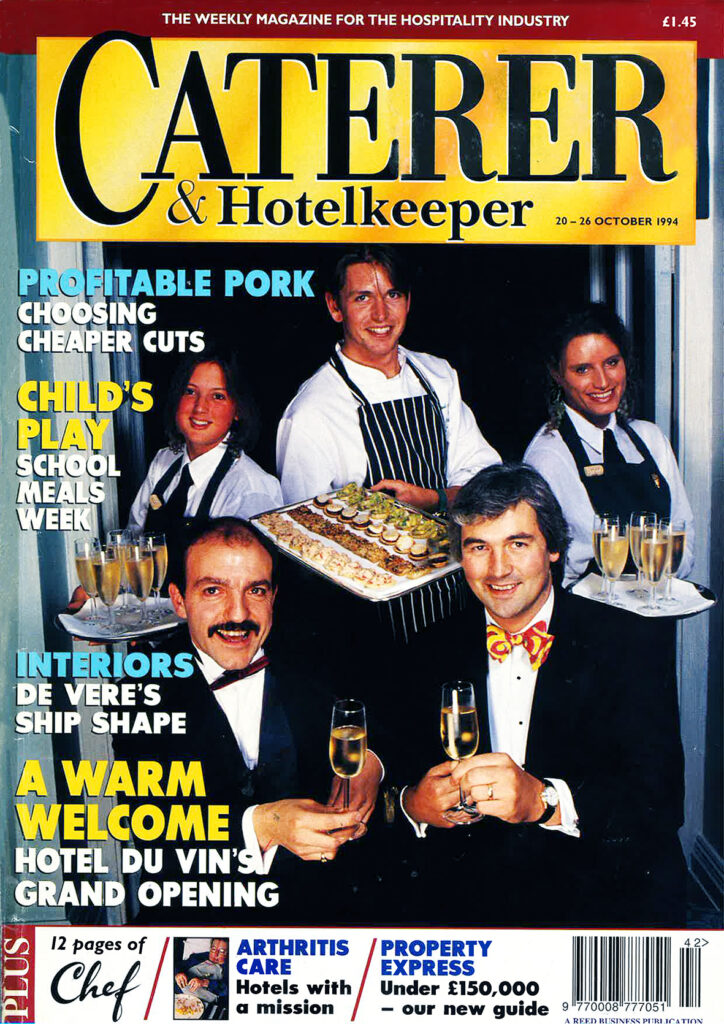
Today Basset is widely touted as the man who changed the face of wine service. Here was someone who could not rest until he had achieved every wine qualification known to humanity. He became Master Sommelier and Master of Wine, and he was even named the number one sommelier in the European and World Sommelier Championships. This obsessive desire to prove himself did not manifest during service – according to those who knew him he had an open-minded no-snobbery approach to pouring wine, and he possessed the gift of making his customers feel comfortable. He gave the sommeliers in his team absolute autonomy over their own lists, something Hutson still does today at The Pigs.

Hutson, like Basset, experienced his own moment of female-inspired anagnorisis. His came when his family uprooted him from edgy New Cross in Southeast London and moved, lock stock, to leafy Godalming in Surrey. Perhaps motivated by concerns for young Robin’s welfare, his heating engineer father, and his mother – an inspirational cook – decided to forgo young Master Robin’s all-boys Haberdashers Aske grammar school education for a taste of bucolic Surrey. This upheaval was to deliver the opposite effect: 14 year old Hutson was unused to girls and could not believe his luck – his pursuit of ten ‘O’ Levels switched to the pursuit of numerous newly discovered female classmates. A desultory clutch of ‘O’ levels resulted. He was not asked to return for sixth form and hospitality beckoned.
Hutson has always championed English wine and the huge kudos of The Pig brand has gone a long way toward changing the public’s perception of it. Modestly described by Robin as ‘restaurants with rooms’, The Pigs are a small chain of insanely popular, individual boutique hotels dotted about the south of England in every Southern coastal county from Cornwall to Kent. Turnover is circa 40 million and they employ around 900 people, 75 of those are apprentices. As you might expect with the obviously gifted Judy Hutson at the interiors helm, every Pig has its own identity and every room is different. There are eight Pigs, in eight beautiful country or town houses. Some have large kitchen gardens to supply the restaurants, others have libraries and lounge bars, and one even has a vineyard. Unpretentious and welcoming, they are booked up for months in advance.
Lisse Garnett (LG): When did wine lust first hit you?
Robin Hutson (RH): I was a Claridge’s management trainee and a commis waiter – when I say waiter, all I did was run around with a big tray. Cheap labour really. I wore a chef’s jacket and was pretty lowly in the pecking order. They had a restaurant in the group called Stones Chop House that was like Simpson on the Strand – I worked the bar. I spent quite a lot of time there and got to try more wine. It was probably the first place that I got slightly into by the glass and got to understand that there were all these weird and wonderful labels out there, I was fascinated – I think it was a bit like stamp collecting, you know I was just fascinated by all these labels.
LG: So you got into being nerdy quite young?
RH: I don’t really think of myself as being nerdy. I do know a lot of wine nerds and I think I enjoy my wine more than most of them. Hee-hee… I love collecting wine and I love drinking wine and I have a reasonable collection. We live in a Georgian house with a nice big cellar and I buy a little bit but nothing crazy crazy.
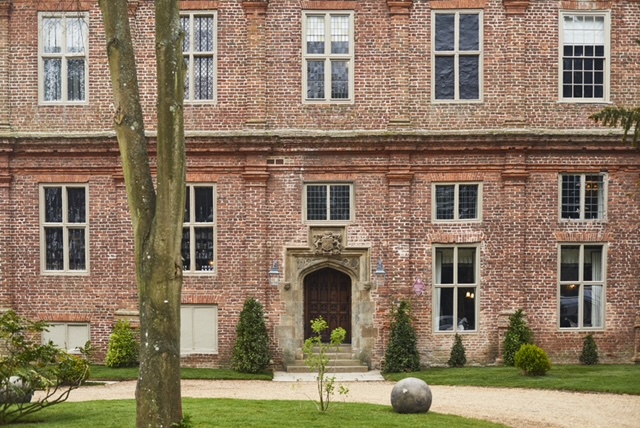
LG: Wine has always been part of your professional life but how did you come by English wine?
RH: We have been actively supressing sales of Champagne since 2014, if anyone waltzes into a Pig and asks for Champagne we’ve been selling them English sparkling wine. When we bought the Hotel in Kent (The Pig at Bridge Place) I realised the local vineyards had organised themselves into this Wine Garden of England which is absolutely what they should be doing. So we made a beeline to get right into the breach there, we became the obvious choice for any activity around wine tourism in the area. Some of the best wines in the UK are right in that corner. We really started getting under the surface of it a little bit in terms of English wine through being in Kent.
LG: So you have been selling English fizz by the glass since 2014?
RH: Initially we started with Nyetimber. A lot of our wine buying was through FMV. John Hunt was a mate and he said look at Hambledon and that resulted in a deal – we are shifting serious volume – we were selling about 10 000 bottles a year for our initial contract. Hambledon still sits in the core of our portfolio and we use it by the glass in Hampshire, Dorset and Bath, but where we have more local vineyards around us we don’t have a specific house fizz but rotate through the Garden of England offerings every two months. We go from Gusbourne to Simpsons, to Hush Heath to Chapel Down…
https://www.winegardenofengland.co.uk
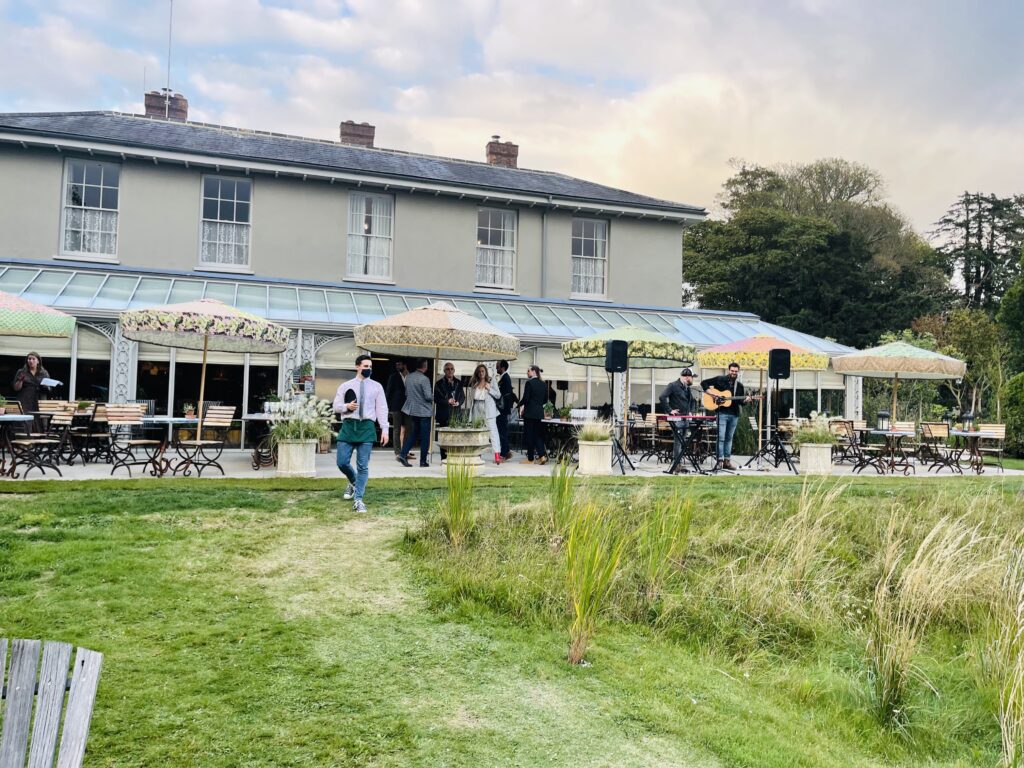
LG: I know you’ve recently planted a vineyard at the Pig near Arundel and I hear you have a few rows of Gamay; do you think still wines have a good future here in the UK?
RH: I started really getting into still wine, before we opened in Kent. I really hadn’t found a still red from the UK that I felt I would want to buy, for me Danbury Ridge Octagon Block and Gusbourne Reserve are the stand-out Pinot Noirs, I actually think they compare pretty favourably to certain Village [Burgundy] wines. I got very excited about the still wines and now in every one of our hotels we have over 30 references of English wine on every list. I’m sure we are shifting more than anyone else is given our scale.
In Cornwall we are tied up with Camel Valley. We opened a lobster shack down there in the Summer and we started promoting lobster with Camel Valley Rose, and we ran them dry. They had to restrict sales elsewhere to try to keep us going. Then we found the Sussex site. Kent, Cornwall and Sussex were all the pipeline when covid hit so it was all abit buttock clenching at that moment and we elected to open Kent first and then Cornwall and then Sussex so Sussex was kicking around for quite a long time.
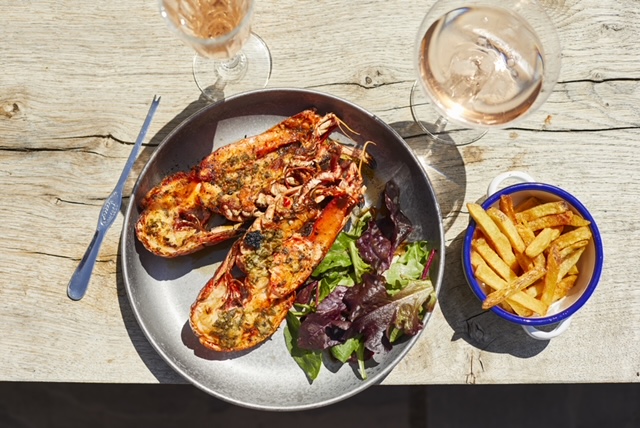
The benefit of that long wait is that you get to look at it several times, you look at the layout. I came from Kent one day and I had vineyards in my head I suddenly looked out, you know those cellar door restaurants in New Zealand or wherever, I looked out and thought this is the spot. I asked Charles Simpson to pop over and I asked Ian Kellet to come and said what do you think? They sort of kicked the dirt a bit and said I think it’s worth taking a closer look so I got on to Vine-Works and we are expecting the first crop next year.
LG: What’s the site like?
RH: It lies on chalk, Kimmeridgian clay, a continuation of that Champagne band. There is a lower field for the frost, and it’s southwest facing and sheltered. Of course I had all these dreamy ideas – could we get some cuttings from Romanée-Conti – they said we can certainly get some good Burgundy clones, so we have two Burgundy clones of Chardonnay, two of Pinot Noir and I said I want to do something funky as well so what can we get? Can we get Cab Franc what? We ended up with a couple rows of Gamay. But really I am hedging my bets: the ambition is to make still wine but if all else goes tits up I can use it for something fizzy.
LG: How much have you spent and who will harvest?
RH: We’ve got an army of people that, when it comes to picking and pruning, everyone can get involved. I want all the Sommeliers involved.
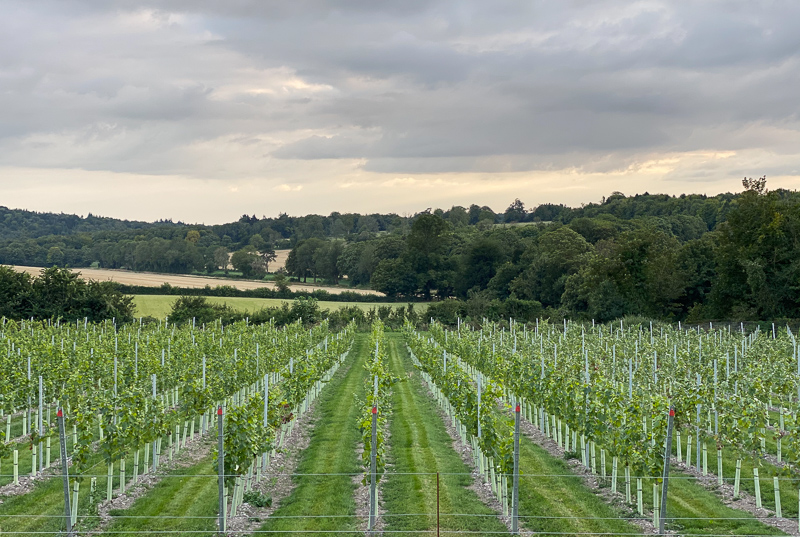
We planted in May 2020. Vine-Works did the lot and I’m into it for about 60k so far. From my perspective, it’s not my main business so I’d rather make 100 bottles of something amazing than 5000 of something terrible so if I want to go around picking individual grapes and ponce about I can.
We are not going to organic; we are going to do what’s necessary as with our gardens, we only spray when absolutely necessary.
LG: How do you operate the wine programme at the Pigs?
RH: First of all each Sommelier has freedom with their list and that was a really important fundamental decision as far as I was concerned. We do certain group deals around our fizz by the glass, we have a couple of house things that the sommeliers have had a role in blending such as the Tenuta Fertuna from Tuscany, that’s a great glass of wine and created in partnership with us.
Essentially each Sommelier for every Pig has freedom with their list. Every so often I will visit and check that they haven’t moved out of a band of pricing and I always see a great selection for thirty quid or less, but equally there should be an opportunity for somebody to spend a hundred or two hundred quid on a bottle and we do sell those bottles – they do go.
LG: What about mark up?
RH: So the instruction with regard to mark-up – of course you make your mark up at the bottom end of the list but the more we pay for a bottle the less you pay us. It’s not rocket science. There is a system that they plug everything into and it calculates exactly where the pricing is sitting.
LG: You offer English sparkling by the glass, and have done since the off. It’s an expensive product, so how do you do it?
RH: You get five glasses of fizz out of a bottle and of course we make less margin, we try to do good deals with suppliers. When we originally started supressing champagne in 2014 I said to Nyetimber at the time and then Hambledon and the Wine Garden of England, you know we’ve got to work together here, if we are going to do this job together and make a name for English wine we need you to work with us. At the time we were paying fifteen quid for a bottle of house champagne and we said if you can match that we can really do something here.
LG: Why English?
RH: I think it’s really important that properties with a profile are getting behind English wine. IT’S A GREAT BRITISH STORY. It sort of upsets me you know – when I go into a place and see Champagne being poured. We still pour it – we pour Bollinger, I love Bollinger and in my cellar at home I’ve probably got half a dozen bottles but I have three dozen bottles of English fizz. It’s a fantastic thing and we should all get behind it.
LG: Robin, I’ve met your Sommeliers and they are clearly satisfied with their work but my mother was a waitress and I watched her slide through a succession of progressively crappy jobs as she aged, losing her self-respect in the process. We don’t exactly see many older people serving wine in the UK, probably because it’s still seen as menial. Does hospitality offer realistic long-term career prospects these days or is it a young person’s game?
RH: This is such a deep-seated problem. For me we have an issue in this country with valuing craft. Period. Many would rather that little Johnny had a crummy degree than became a great carpenter, chef or winemaker because of some snobbery over practical professions, but until we get the parents onboard things will not change.
We also need the government onboard. It all started going tits up when they wanted everyone to have a degree when what we really need is more craft places available. Send the very best academic minds to University to do brain surgery by all means but there’s a lot of kids out there who would love getting involved in hospitality. It’s a fantastic profession and I think there is an opportunity for people to have a career for life, but it’s such a complex web.
LG: What are the challenges?
RH: Property in the UK is so expensive so that means that we have to sweat our assets.
I’ve been talking to government about this issue. What we’ve really seen certainly in terms of housing and staff is that anywhere that is remotely a holiday destination has extremely high housing costs and every spare room is an Airbnb so in the course of last year I bought five flats to accommodate staff not because I want to but because I simply have to. I can’t get people into accommodation.
LG: And do you only take full timers?
RH: No – not at all, these days if somebody wants to work 3 hours on a wet Tuesday in February we will take them. It’s true – because we need to be flexible, actually we are the perfect industry for mums returning to work or those looking for a second career. So I think the attitude absolutely has to change.
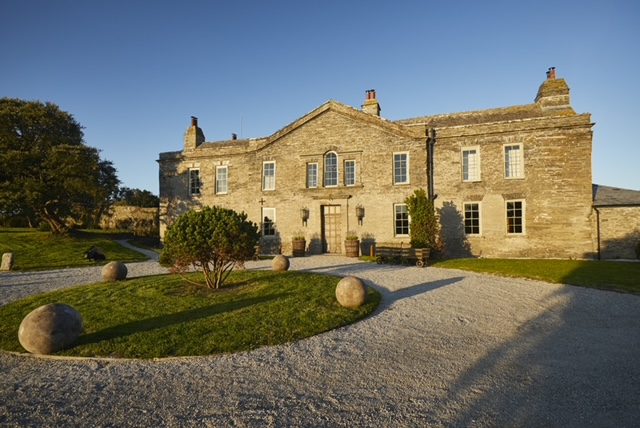
Ed Osborne, Head Sommelier of The Pig in Bath tells us what the great British public really thinks about English wine…
I interviewed four Pig Head Sommeliers for this piece all of whom have been sponsored by Robin to take their WSET Diplomas and one of whom has just joined the MW programme, also funded by Robin. Impressive, sharp, personable – it’s obvious Hutson has an eye for talent and is not afraid of putting his money into looking after their welfare. I asked each of them for details of their individual wine programmes, each was as enthusiastic as the last but I had to pick one to avoid writing a novel…
Ed Osborne, Head Sommelier at the Pig near Bath
Lisse Garnett (LG): How did you come to wine?
Ed Osborne (EO): I started my wine career with the Pig over five years ago. I had done my WSET Level 2 when I was about 18 because it was an interest of mine, but at that point I did not recognise it as a potential career. I always knew that in other countries hospitality was a career choice thanks to regular trips to France when I was a child. My Grandfather had a house in Bergerac nestled in Cab Franc vineyards so I saw it was a well-respected trade in France.
In England over the last ten years, particularly with places like the Pig and in rural environment as well there’s been a real growth of opportunity in hospitality. I’m currently doing the WSET Diploma (sponsored by the Pig). It’s challenging but I’m learning so much and it so helpful learning on the job.
LG: How easy is it to sell English wine?
EO: There is a real diversity of responses, some are curious, they’ve never heard of it before, others are excited and some offer disbelief – that still wines can even ripen here. But we are definitely seeing more and more people who have cottoned on and are locked into English wine.
LG: How many English wines do you have on your list?
EO: We have circa thirty active references at the moment, ten of which are sparkling, we have twenty still.
LG: You sell sparkling by the glass?
EO: Absolutely. We have our Hambledon house pour: its our benchmark classic Cuvée option. Occasionally we will pop on a local Blanc de Noirs or a local sparkling rosé by the glass.
LG: Are you able to make the English wines comparable to continental offerings in terms of price?
EO: We try to keep a diverse range of price points on the list. We open with an approachable Bacchus and then we’ve got some serious Burgundian-style Pinots such as Danbury Ridge. We offer a Simpsons Chardonnay by the glass: I would offer this as an alternative to a Petit Chablis for example, fresh, green apple, mineral and clean. Our local Aldwick Estate Bacchus I would suggest might be the ideal alternative to flinty NZ Sauvignon Blanc. We are not steering them away but simply showing the wines. We just finished our stocks of Hush Heath Balfour The Red Miller and we offer Chapel Down Kit’s Coty Chardonnay, which is absolutely my favourite. This we Coravin as it’s heading toward the premium price point.
LG: When Burgundy drinkers try an English red how do they react?
EO: It’s about steering the guest in the circumstances. Some wines are more transferable than others, some are lean and offer crunchy red fruit, high acidity and are quintessentially English, others are riper with a more rounded structure, and have perhaps seen oak such as the Boot Hill Pinot Noir from Gusbourne. If you read the guests correctly I think you’ll find it’s something that they’ll enjoy.
LG: How do you support local growers?
EO: I think its imperative that each Pig offers representation to local growers within a 25 mile radius, something we also try to do with our food sourcing too. This is also a fantastic way to build local relationships: we can do events and get involved with other ways of pouring wine for our guests.
LG: Are you able to negotiate prices direct with local wineries? Surely for them getting a wine on list at the Pig must be a pretty enticing and could potentially really make their brand?
EO: Yes, it is dependent on how many hotels within the group want to list a certain wine. If it’s a group wine, we discuss a group price. If it’s a more local vineyard the individual sommelier will discuss pricing directly.
LG: Is it possible to have a personal life and work the floor?
EO: The Pig is careful to promote the work life balance. I work hard but the buzz of being in the trade at the genesis of the English wine movement far outweighs any small inconvenience. For women too it’s an option, I have a female sommelier in my team and she is doing brilliantly. I have a baby and the hotel have been really accommodating, my partner had to go into hospital and without me even mentioning it the hotel Director Sarah called me up and told me she was adding a few more days onto my paternity leave. It’s a really compassionate company and that makes it easier to juggle those things.
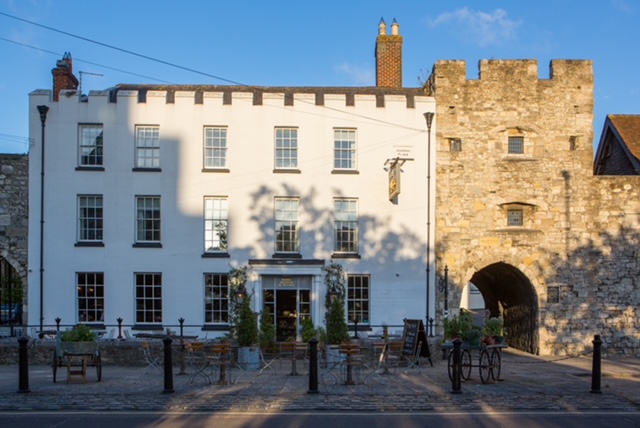
Website: The Pig
See also: The Business of English Wine (1): James Dodson, Vine-Works


